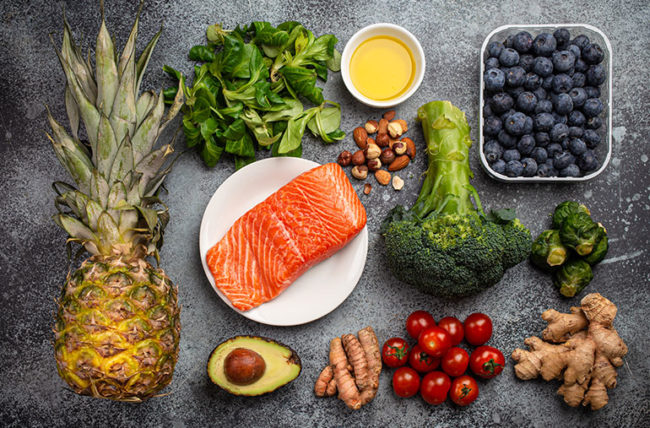Based on science, there are two types of inflammation: acute inflammation and chronic inflammation. In addition, there’s an array of factors that contribute to inflammation. These factors include long-term exposure to irritants, an autoimmune disorder, chronic stress, smoking, alcohol abuse, untreated acute inflammation, and obesity.
What is Inflammation and What it does to your body?
Inflammation is an essential part of your body’s defense mechanism that plays a significant role in the healing process. When toxins, injuries, and infections damage your cells, your body releases chemicals that boost your immune system. This response incorporates the release of proteins and antibodies. In addition, inflammation increases blood flow on the damaged sections of your body.
When you live with chronic or acute inflammation, your body’s inflammatory response starts damaging healthy organs, tissues, and cells. The inflammatory response can lead to tissue death, DNA damage, and internal scaring in the long term. In addition, you’ll have a higher risk of developing severe health issues, such as obesity, type 2 diabetes, cancer, cognitive decline, rheumatoid arthritis, heart disease, asthma, and dementia.
Symptoms of Inflammation
Acute inflammation causes noticeable symptoms, such as swelling, redness, and pain. On the other hand, chronic inflammation symptoms are more subtle. These symptoms include the following:

– Persistent infections
– Anxiety or depression
– Body pain
– Fatigue
– Weight loss
– Weight gain
– Gastrointestinal complications ( constipation or diarrhea)
Inflammation symptoms can vary from mild to severe. In addition, these symptoms can last for several months or years.
Benefits of Embracing Anti-Inflammatory Diet
The anti-inflammatory diet plays a vital role in reducing the risk of health issues associated with acute and chronic inflammation. This diet incorporates vegetables, healthy fats, lean proteins, nuts, and fruits. Below are the benefits of an anti-inflammatory diet:
1. Disease Prevention
As previously mentioned, chronic inflammation can increase your odds of developing severe health issues. The anti-inflammatory diet is a balanced and nutritious diet plan that can boost your long-term health and well-being. According to research, a diet rich in anti-inflammatory foods can treat or prevent obesity, heart disease, arthritis, Alzheimer’s disease, allergies, type 2 diabetes, certain types of cancer, stroke, and inflammatory bowel disease.
2. Reduces Inflammation
Scientifically, an anti-inflammatory diet can reduce disease risk and chronic inflammation. The ideal food group contains substances, such as antioxidants and resveratrol, that help manage inflammation.
3. Aids Weight Loss
An anti-inflammatory diet can help you attain your fitness goals. Currently, most individuals are struggling with obesity and belly fat. Anti-inflammatory eating patterns reduce inflammation and manage weight, particularly in subjects with pre-diabetes and diabetes.
4. Promotes Healthy Eating
According to research, anti-inflammatory foods contain minerals, vitamins, and other essential nutrients. Generally, this diet plan provides a good balance of proteins, healthy fats, and carbohydrates. In addition, it incorporates dark leafy greens, fruits, berries, and cruciferous veggies, which are essential in boosting your overall health.
5. An Abundance of Recipes
There’s an array of recipes that are compliant with the anti-inflammatory diet.
6. Not Restrictive
The anti-inflammatory eating pattern is easy to follow. This is because there’s no calorie-counting or strict meal plans. You’ve the opportunity to modify the diet to suit your tastes and preferences as long as you adhere to the anti-inflammatory diet pyramid.
Slow Cooking Benefits
a. Healthy and Nutritious
Slow cooking retains food nutrients and prevents the risk of releasing harmful chemicals. In addition, it preserves the flavour and freshness of the food.
b. Better Flavor
The extended cooking time improves the distribution of flavours in various recipes. The anti-inflammatory food spends a long time soaking up and simmering flavours. This is the main reason slow-cooked foods are yummy.
c. Convenient
Slow cooking is more convenient because the process is easy. In addition, it reduces the preparation time.
What Foods to Eat and Foods to Avoid

Foods to Eat
– Fruits, especially oranges, blueberries, and cherries.
– Fatty fish, like mackerel, sardines, and salmon
– Leafy greens, like spinach and kale
– Olive oil
– Nuts, such as almonds, walnuts, hazelnuts, and pecans.
– Tomatoes
– Broccoli
– Beans, such as black beans and red beans
Foods to Avoid
– Fried foods
– Refined carbohydrates
– Processed meat
– High-fat dairy products
– Margarine
Conclusion
There’s a wide range of anti-inflammatory diet plans. Therefore, you should modify the diet plan to suit your tastes and needs. The slim chickens menu focuses on fresh chicken wings, tenders, salads, wraps, sandwiches, chicken & waffles, fried mushrooms, etc.
